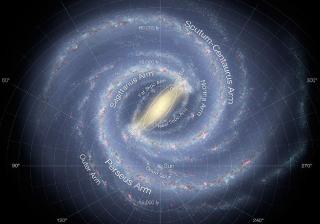Bibcode
Jiménez Esteban, F. M.; Cabrera-Lavers, A.; Cardiel, N.; Alacid, J. M.
Referencia bibliográfica
Monthly Notices of the Royal Astronomical Society, Volume 427, Issue 1, pp. 679-687.
Fecha de publicación:
11
2012
Número de citas
2
Número de citas referidas
0
Descripción
The observation of blank fields, defined as regions of the sky that are
devoid of stars down to a given threshold magnitude, constitutes one of
the most relevant calibration procedures required for the proper
reduction of astronomical data obtained following typical observing
strategies. In this work, we have used Delaunay triangulation to search
for deep blank fields throughout the whole sky, with a minimum size of
10 arcmin in diameter and an increasing threshold magnitude from 15 to
18 in the R band of the USNO-B Catalog of the United States Naval
Observatory. The result is a catalogue with the deepest blank fields
known so far. A short sample of these regions has been tested with the
10.4-m Gran Telescopio Canarias, and it has been shown to be extremely
useful for medium- and large-sized telescopes. Because some of the
regions found could also be suitable for new extragalactic studies, we
have estimated the galactic extinction in the direction of each deep
blank field. This catalogue is accessible through the virtual
observatory tool TESELA, and the user can retrieve - and visualize using
ALADIN - the deep blank fields available near a given position in the
sky.
Proyectos relacionados

Morfología y dinámica de la Vía Láctea
El Proyecto se estructura en dos partes, diferenciadas pero complementarias: morfología y dinámica. El estudio detallado de la morfología de la Vía Láctea pretende proveer una base de datos de distribución estelar en las regiones más alejadas y extintas de nuestra Galaxia, mediante el desarrollo de modelos semiempíricos a partir de la información
Martín
López Corredoira